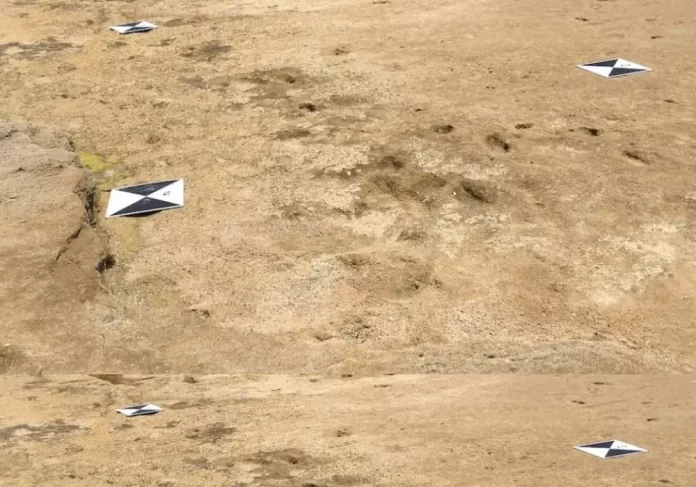In a groundbreaking discovery, archaeologists in Morocco have uncovered over 80 human footprints believed to be the oldest in North Africa, dating back approximately 100,000 years.
The footprints, thought to have been left by five Homo sapiens individuals, including children, were found along the coast of Larache, situated 90 kilometers (55 miles) south of Tangier. A collaborative effort involving archaeologists from Morocco, Spain, France, and Germany led to the remarkable find.
Anass Sedrati, curator at the archaeological site of Lixus Larache, explained that the group of Homo sapiens individuals appears to have been traversing the beach towards the sea, likely in search of food and shellfish, suggesting they were fishermen or gatherers.
Published in the scientific journal Nature in January, the researchers described the footprints as among the world’s best-preserved human traces and the oldest in North Africa and the southern Mediterranean.
The discovery was made during a field mission in July 2022 as part of a scientific research project focusing on the origins and dynamics of the boulders strewn along the coastline, led by France’s Universite Bretagne Sud.
This finding adds to Morocco’s rich archaeological heritage, with previous discoveries including Homo sapiens remains dating back 300,000 years in northwest Morocco, pushing back the estimated origin of the human species by 100,000 years.
Anass Sedrati emphasized the significance of the Larache region in human history, highlighting the discovery of animal traces alongside human footprints.
However, the preservation of this remarkable heritage site faces challenges from rising sea levels and storms. Mouncef Sedrati, head of the research project, stressed the importance of protecting the site while acknowledging the inevitability of further discoveries as sediments erode.
As erosion progresses, Sedrati expressed optimism about uncovering new traces that could provide additional insights into the lives of Homo sapiens along the Moroccan coast, further enriching our understanding of human history in the region.



